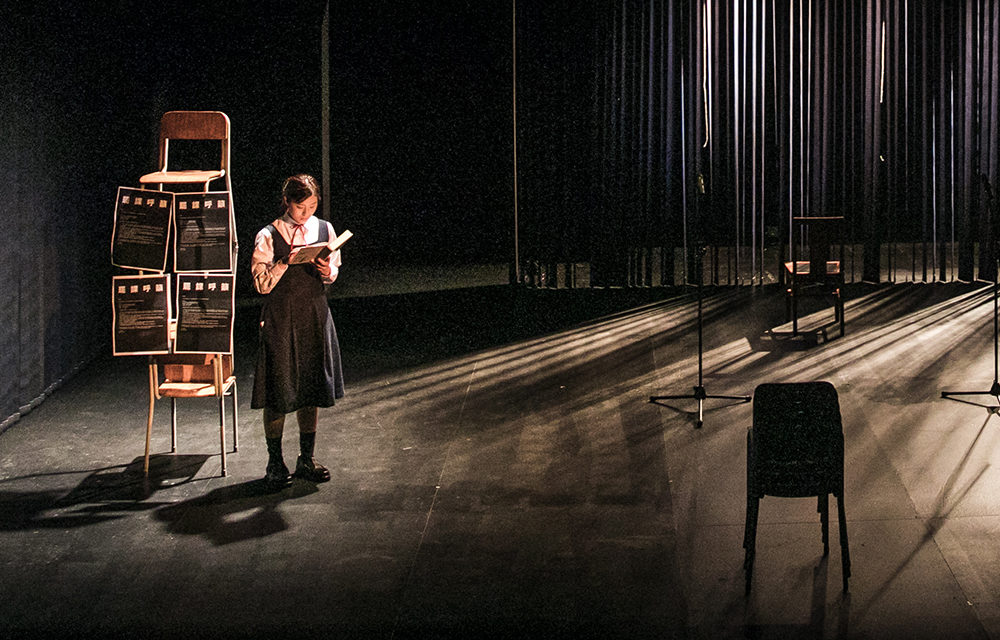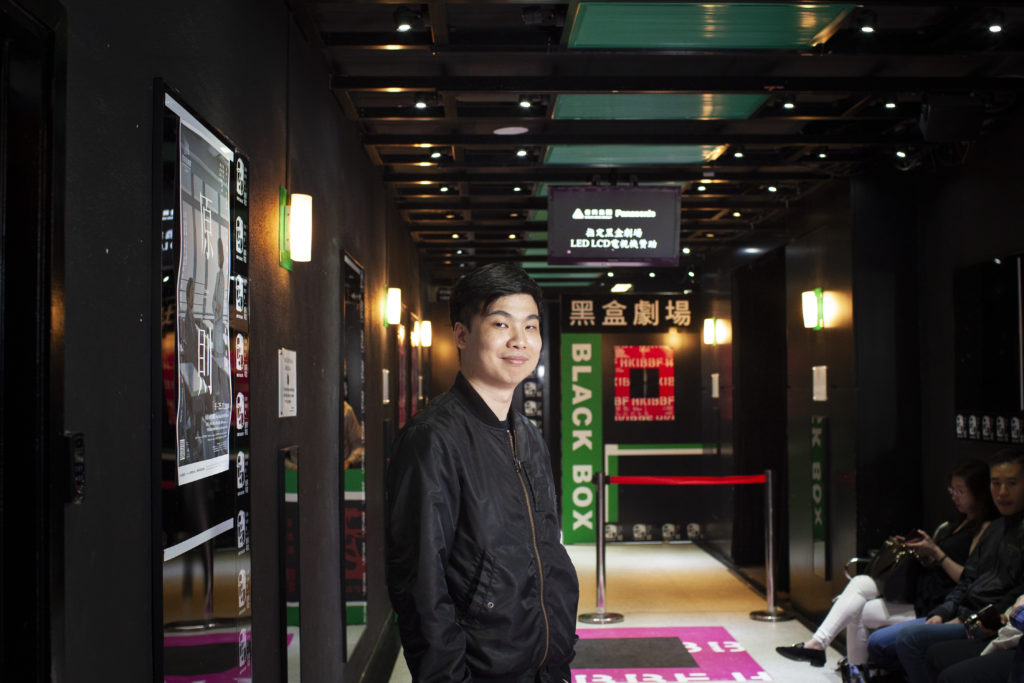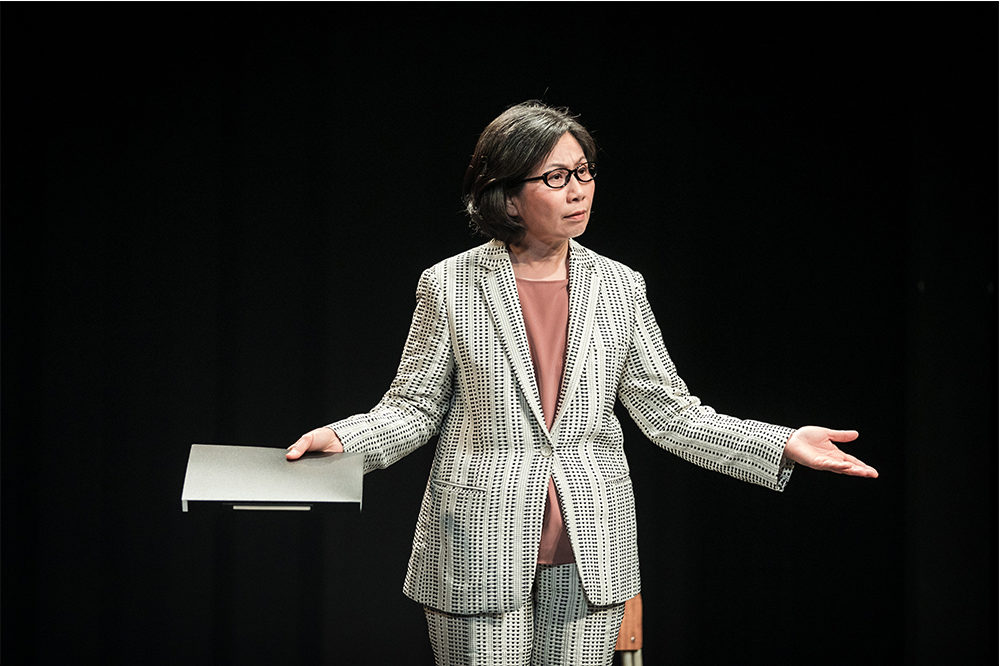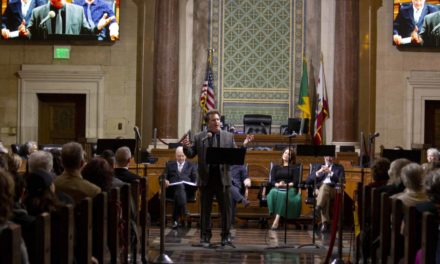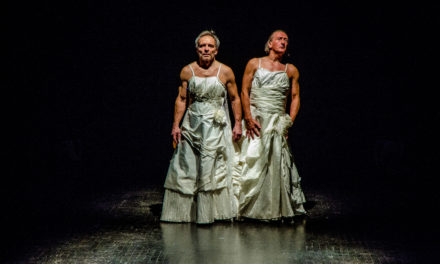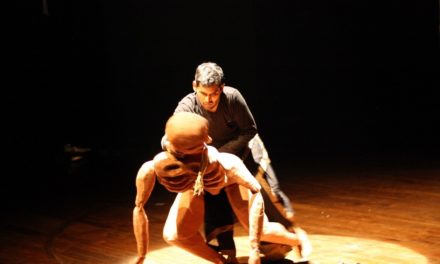From an early age, we are taught that right and wrong are two distinct entities, just as easily distinguished as black and white, or night and day. But is it ever truly that simple? When director Fong Chun-kit began working on his revival of Principle, he asked his actors what they would do when their beliefs or convictions are challenged. “How can they protect their own principles?”
Principle was originally staged last year at the Hong Kong Repertory Black Box Theatre. Now Fong and playwright Ivan Kwok have been tasked with bringing the production to a new venue, with a new cast and a redeveloped script.
“I was an audience member in the first play,” recalls Fong, “but I went backstage at the end and tried to find the playwright because I wanted him to know how deeply it moved me.”
Inspired by events that took place in Kwok’s secondary school in 2005, Principle chronicles the struggles of both students and teachers faced with the pressures of education in Hong Kong. The school’s principal (played by Lui Si-lan) espouses hard-line, authoritarian approach that reacts to disorder and disobedience with punishment. For her, success is measured by the ability to work within the existing status quo; not to challenge it. To do this, students are pushed down the academic route, with pressure mounting to succeed.
This echoes the reality of education in Hong Kong. With an overriding emphasis on academic excellence, the city holds the dubious honor of hosting one of the world’s most stressful schooling systems. It’s a city where cram schools are the norm and tutors have risen to celebrity status; a government report from January 2018 estimates between 50 and 75 percent of primary and secondary students attend after school private tuition.
The principal’s views stand in stark contrast to those of the vice principal (played by Ko Hon-man), an advocate of a more rounded education experience. Uniform though their aims may be, the two senior educators are unable to work together or communicate amicably, leaving the vice principal’s professional position in peril and the students outraged. It raises questions about the true meaning of education and justice.
When asked if Fong recalls both methods of teaching from his youth, he nods. He says the hard-line approach may be more systemic than intentional.
“By their very nature, teachers are more like [the vice principal]. It’s hard to stay that way, though,” he says. “There’s so much other work they are tasked with the outside of teaching. The administrative tasks, the targets to hit, percentages to consider. They’re not only working to help the students.”
Irrespective of a profession, when your passion becomes painstaking or steeped in bureaucracy, it can be hard not to adapt your approach.
While education may serve as the framework for the production, it also raises a wider question: how can society become better? In response, Fong presents two opposing views. In the first, youth are encouraged to become high functioning members of the status quo by playing by the rules of the system – obeying rules and achieving results. In the latter, a better society needs better individuals. Grades aside, this approach is encouraged by social inclusion and positive reinforcement.
The play’s title is a homonym, referencing both the titular characters and the moral undertones present throughout the production.
“They have opposing views of education, but that’s not the only thing we’re talking about here,” says Fong. “It’s very complicated. We never see the whole truth.”
Contrasting though their views may be, both characters share the same goal – to leave students with the best possible chance of success. Given the exacting demands and pressures felt by Hong Kong students today, it has become an increasingly poignant topic of debate. This may not be a uniquely Hong Kong position, but it is one that plagues the city. According to a survey conducted by the Hong Kong Playground Association in May, the quest for success has left a third of Hong Kong’s youth battling anxiety and depression.
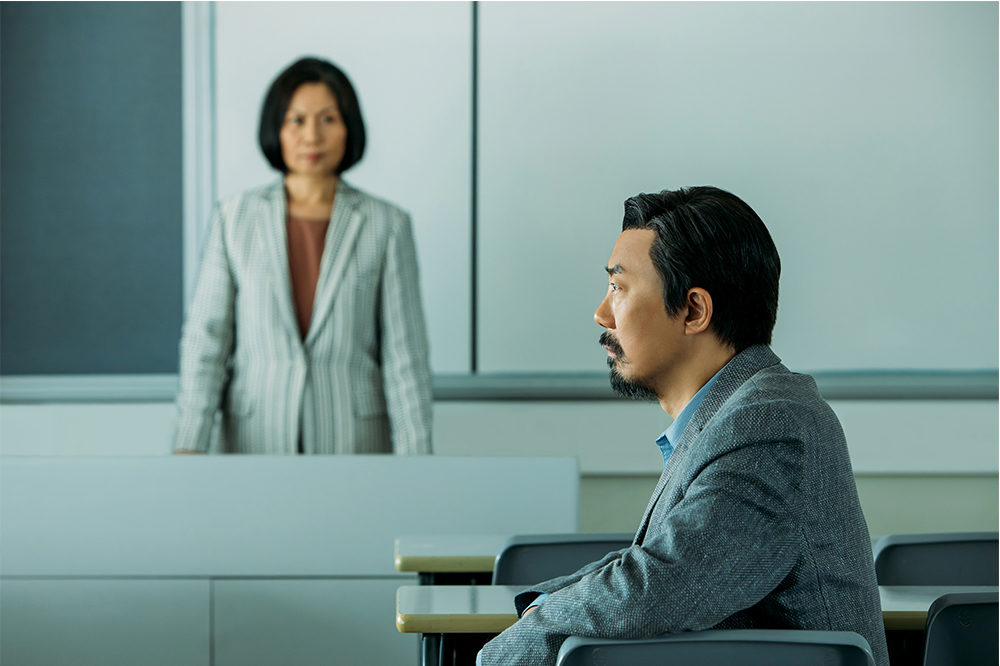
The new school principal (Lui Si-lan) and vice-principal (Ko Hon-man), 2018 – Photo by Tung Tung Tung
According to critics, one culprit is the Territory-Wide System Assessment (TSA), which has been in place since 2004. The examination is sat by students in Primary Three and Six (aged between 8 and 10), and has been widely criticized due to the pressure it places on both students and educators. Between 2012 and 2015, Lingnan University’s Children’s Happiness Index indicated a 14 percent decrease in self-reported happiness of children aged eight and nine. And in 2015, close to 40,000 parents signed a petition to have TSA exams banned. The examination has since been replaced with the Basic Competency Assessment, with 30 of 34 government primary schools voluntarily enrolling in the scheme.
Fong has witnessed this pressure firsthand. Before rehearsals began on Principle, Fong was working with a group of secondary school students, who he says were so engrossed in their studies that they would return to them at any given break. He couldn’t help but absorb the pressure.
“Nowadays, the results-orientated focus puts a lot more stress on the students,” he says. “They want good results to get a place at university to land a higher paying job. I wonder if they could feel happier, but I can see why they are doing it.”
Principle’s plot is inherently relatable, and it has allowed Fong to draw on his own experiences while rehearsing. He recounts his own time at university as the president of the student union, dealing with structural changes at the school while representing his fellow students, all the while struggling to maintain his own focus.
In its initial run last year, Principle received the highest praise possible – a string of 14 sold-out shows and critical acclaim. This year, it moves from the Hong Kong Repertory Black Box Theatre to a much larger venue at City Hall.
“The aim of the show is different this time,” says Fong. “We have more resources – like resident actors – joining the show. I think it’s good, because they work well together as an ensemble,” says Fong.
The cast is still small, with five actors – “and five points of view,” says Fong. Supporting the principal and the vice principal are students and teachers, whose voices have been given more prominence in the adjusted script. It’s a change that adds to the complexity of the situation, rather than detracting from the dichotomy between the school’s two leaders.
At the end of the original play, the vice principal looked out to the audience and asked them to raise their hands if they believed he was right in his final decision, mirroring a classroom set-up.
“As an audience member, I couldn’t make a decision, and that’s what made it powerful for me,” says Fong. “When a show finishes, I don’t want people to cast it aside and talk about what they’re having for dinner. I want it to leave a lasting impression.”
This article was written by Amanda Sheppard for Zolima CityMag on October 23, 2018, and has been reposted with permission.
This post was written by the author in their personal capacity.The opinions expressed in this article are the author’s own and do not reflect the view of The Theatre Times, their staff or collaborators.
This post was written by Zolima CityMag.
The views expressed here belong to the author and do not necessarily reflect our views and opinions.

